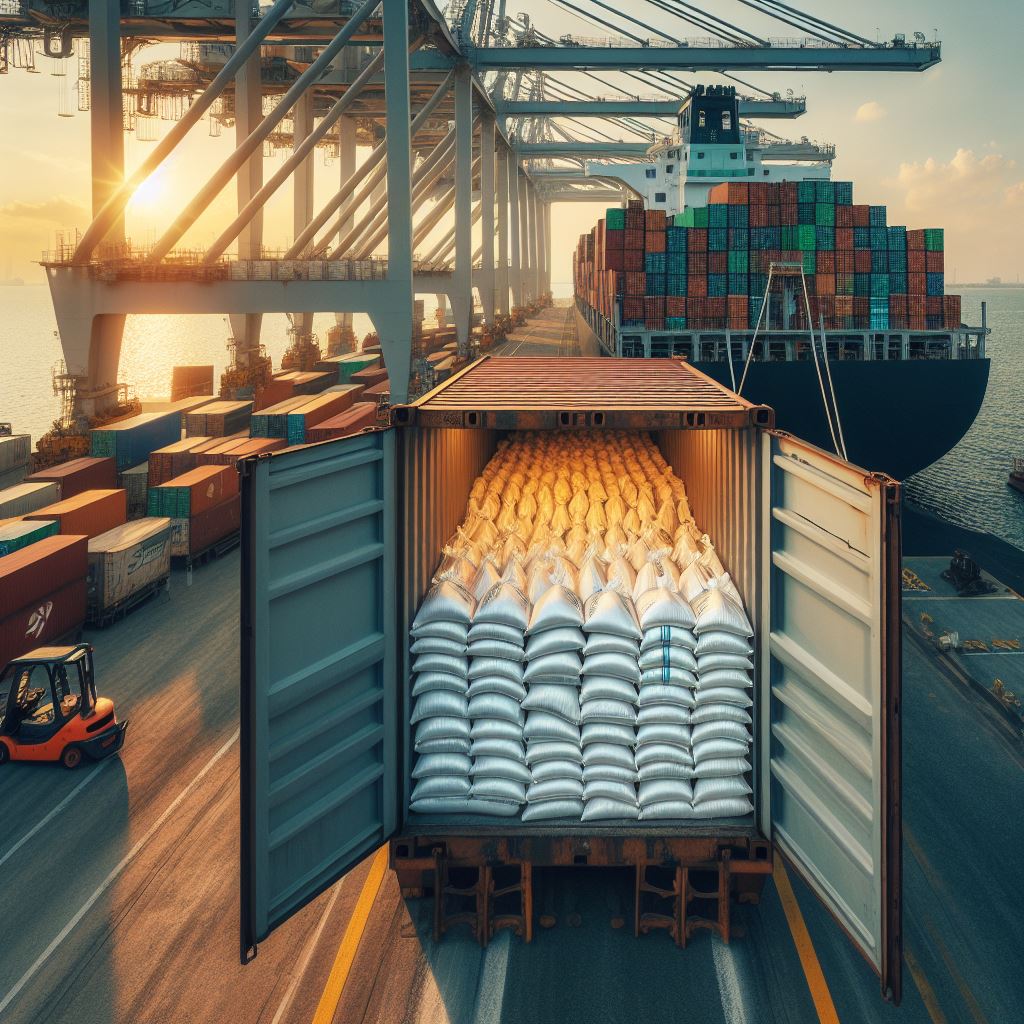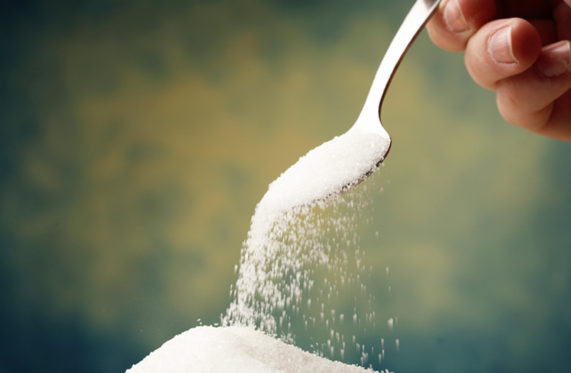BRAZIL – Brazilian white sugar export logistics using containers

In recent years, the Brazilian shipment of bagged white sugar has migrated from conventional vessels with loose bags and an average capacity of 14,000 tons, to fractional shipments in container lots and an average of around 600 tons each. This change substantially increases the number of shipments and their different export processes, bringing important logistical impacts for the agents involved in the chain.
Contents
The logistical impact
Considering the average of 25 units per shipment, and multiplying by the capacity of the containers of 27 tons each, there are lots of just over 600 tons (t). This change is capable of multiplying the number of shipments by more than 20 times.
The change occurred and was driven by buyers, mostly Trading Houses responsible for international trade in agricultural products.
In Brazil, sugar cane mills do not receive authorization to export, so they usually sell quotas to Trading Houses and these move the trade in response to requests from final buyers, resellers, distributors or even industries that use sugar in their production process.
Advantages and disadvantages
For the end customer, there are the following benefits:
Reduction of financial and operational risks: volumes that represent around 10 million US dollars, had their values significantly reduced by shipment;
Diversification at destination and simplification of distribution: on conventional ships the cargo must be unloaded in warehouses for later partitioning and delivery to customers, a similar activity in wholesalers. In the containers, each lot represents the partitioning of the shipment and can be directly withdrawn at the destination by the final buyer. This fact also made it possible to increase the number of countries and destinations served by taking Brazilian sugar to the entire world.
The disadvantages are due to the sale price, since smaller orders, divided into containers are a little more expensive than shipments on conventional ships, however, if well planned, purchases can reduce costs, since they can go straight to customers. destinations programmed by the buyer.
The context
The growth of sugar exports led Brazil to the whole of the ranking in the international market. Such growth is mainly supported by shipments of raw VHP sugar (very high polarization), destined for refineries around the world. White sugar exports, with higher added value, despite not growing at the same pace, have been undergoing major changes in their shipments.
The multiplication of shipments in smaller batches has created good opportunities for export-related service providers, such as customs brokers, shipment supervisors and quality analysis, logistics operators and trading companies such as MELLO COMMODITY.
In this way, the credibility of the service providers has been tested with each harvest, but there are still cases of contractual non-compliance, successive price readjustments, passing on of additional unforeseen charges, among others, so it is extremely important to negotiate with serious, verified companies and that have been on the market for many years.
Containerized sugar traders
For the export of white sugar, several agents (companies) are involved in the chain (distribution channel) and interact with each other, either via the extreme market, or vertical integration resulting in different marketing formats.
There are groups of sugar cane mills that own their own Trading or Terminals, in a more vertical structure, up to chains more guided by the market relationship, in which agents coordinate via the market more independently.
There are also structures where an exporting group, composed of 2 or more Trading companies, negotiate preferential quotas with a group of sugar cane mills and sell the product in a closed container or ship directly with the end customer. This is where Mello Commodity operates, which is not a Trading company, but a marketing and sales agency contracted to prospect new customers for container orders.
Mello Commodity markets the portfolio of 27 sugar cane mills through 3 major exporters who have been in the market for over 40 years.
In this format, sugar leaves the plant directly to the port and this results in faster and more efficient shipments. There is also the possibility of fulfilling orders with customized packaging by size or print of the final buyer. In this case, the sugar passes through an operational plant that fills the product according to the required criteria.
There is demand for sugar in customized packaging, request a quote.
Negotiation of the purchase and sale of sugar
After the negotiation and the sugar purchase and sale agreement between the buyer, who wishes to meet specific demand, and the seller, who seeks the destination of the supply of his production, the contract is then concluded between the parties.
Then, the following are defined: the quantity, the price, the form of pricing (fixed or to be fixed by means of futures contracts traded on the exchange), shipping periods, payment methods, among others.
The main difference in the purchase of sugar in conventional vessels and in containers is that, according to shipments, they can be more regular and linear throughout the year.
Containers are usually destined for food industries, such as chocolate, beverage, yogurt, ice cream factories, while closed ships are purchased by wholesalers who subsequently distribute them to supermarkets and commerce in general.
The difference is also seen in the profile of the buyer. Only large trading companies, with access to extensive capital resources, are able to trade orders from 50 thousand metric tons. Meanwhile, that for containers the most common profile is that of small trading companies with more modest resources.
Dangers in buying sugar in containers
With the growth in demand for containerized sugar, the number of scammers who exploit the ignorance of the novice buyer, who is venturing out of the sugar market, has also increased proportionately.
It is essential that the buyer seeks market information before buying, understand supply, demand and pricing. Understand about the import process, bank financing, etc.
Don’t go without information for a sugar deal. Believe it! Scammers then infinitely more prepared than you. They will use the name of major suppliers, they will falsify shipping documents, photos, videos, contracts and they will offer you very, very attractive prices so tempting that they don’t even exist.
If you are not very well prepared, scammers will steal your money, reputation, documents and everything else that is possible. If they don’t steal your money, they will get dirty and stain your company name.
Do you want to buy safely, then talk to our sales team.
Did you like the article? Comment, give suggestions, send your questions.
Related articles:
SUGAR – WHITE LABEL X PRIVATE LABEL
STRONG DEMAND FOR SUGAR IN BRAZIL AGGRAVES GLOBAL DEFICIT

sales@mellocommodity.com.br | www.mellocommodity.com.br
WhatsApp Commercial +55 35 991 295 29 | +55 21 976 723 023
Rio de Janeiro | Minas Gerais | São Paulo – Brazil
Related
Related Post

Maximize Your Business: Download the Brazilian Sugar Suppliers Guide.
Are you ready to take a step forward in the sugar industry and ensure your [...]


